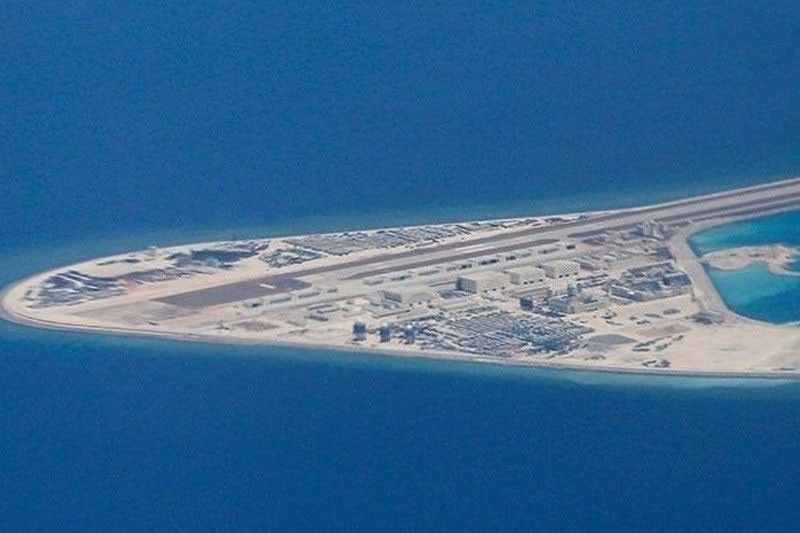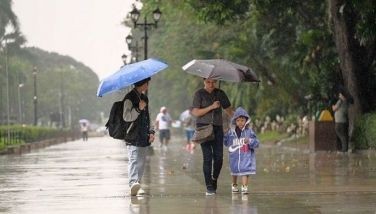Marcos: ASEAN pushes for code of conduct, zero-violence in South China Sea

MANILA, Philippines — Compliance with international law is foundation to resolving the existing South China Sea tensions, President Ferdinand "Bongbong" Marcos Jr. said as he called for a code of conduct to diffuse the risk of conflict in the area.
In an interview with reporters before leaving Cambodia on Sunday, Marcos said that the collective stand of ASEAN leaders on South China Sea tensions was that member states should follow the United Nations Convention on the Law of the Sea and international law.
At the ASEAN Summits in Phnom Penh, Cambodia which wrapped up Sunday — the first face-to-face meeting since the pandemic began — Southeast Asian leaders committed to promoting maritime cooperation based on international law, including the 1982 United Nations Convention on the Law of the Sea or the UNCLOS.
"Now on the South China Sea. Everybody, including the Chinese, says we follow UNCLOS and international law. So at least that position of ASEAN is clear," Marcos said. "Nothing new actually has happened in terms of the code of conduct. We all just restated over and over again: We really need to have a code of conduct."
The Philippines and other claimants to the South China Sea have long been pushing for a code of conduct in the disputed waters aimed at reducing the risk of conflict over the strategic waterway.
But the President was also careful to say: "We are still following the One China Policy but we just want to [have] peace."
The One-China principle is the position held by the People's Republic of China that there is only one legal and sovereign state under the name China, with the PRC serving as the sole legitimate government of that China, which supposedly includes Taiwan.
Marcos added that most leaders at the summit in Cambodia also expressed concern over the situation in Myanmar.
"That was a little contentious. Because there are countries, they say, as long as we remove Myanmar from ASEAN. Or as long as we don't invite them at all," he said in mixed Filipino and English.
Beyond geopolitical tensions, the leaders also mostly touched on pandemic recovery and preparedness for infectious diseases moving forward, Marcos said.
"We talk always about recovering from the pandemic economy. We talked about preparing for the next pandemic. What do we about the scarcity of, let’s say...the prices of food, of fertilizer, energy," the president said.
Marcos also told reporters that he accepted a number of invitations for state visits early next year, including those from the leaders of Vietnam, Brunei, and Thailand.
Earlier, the chief executive also accepted Chinese President Xi Jinping's invitation for a state visit in early January next year. — with reports from The STAR/Helen Flores
- Latest
- Trending

































